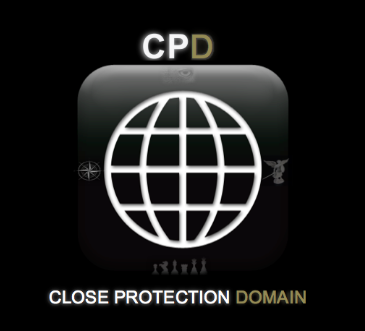Private security companies to be self-regulated
Page 1 of 1
 Private security companies to be self-regulated
Private security companies to be self-regulated
Ministers want security companies to regulate their own staff and the industry's watchdog to move into the private sector
The statutory licensing of more than 330,000 individual private security workers is to be scrapped under a shakeup of the regulation of the industry proposed by Home Office ministers.
They are instead proposing that private security companies regulate their own staff, with the industry's watchdog, the Security Industry Authority, moved into the private sector.
Ministers say the phased move to a "business regulation regime" reflects the "maturity of the private security industry" and supports its willingness to take on further responsibility and be more accountable for its actions.
The new regime will shift responsibility for the standards and behaviour of security staff from the SIA to an estimated 4,200 businesses operating in Britain.
This will leave the regulator with the task of targeting companies or employees that fail to meet the required standards with a range of penalties from banning a company from the industry to criminal prosecution. Companies rather than the regulator will in future be responsible for carrying out checks on individual security staff.
The move will involve the repeal of 2001 legislation, which was introduced following concern about widespread criminality among nightclub bouncers and contract security guards. When licensing was first introduced it covered 130,000 individuals. This has now mushroomed to 330,000 private security staff in a wide range of roles, from escorting failed asylum seekers abroad to running police stations.
The minister for criminal information, Lord Taylor of Holbeach, said reform of the industry would improve transparency and accountability. "Our plans will raise standards and free up the SIA to concentrate on stamping out poor business practices and criminality.
"It is also important that legitimate businesses are not overburdened by government regulation and red tape. By lowering the cost of regulation on the industry, savings can be passed on to customers."
Ministers said that many of the proposed changes can be done without primary legislation but they hope to have the rest of the powers on the statute book by next October. An official consultation will run over the next eight weeks.
Lady Henig, the chairman of the SIA, is due to step down in January, after six years in the role.
The statutory licensing of more than 330,000 individual private security workers is to be scrapped under a shakeup of the regulation of the industry proposed by Home Office ministers.
They are instead proposing that private security companies regulate their own staff, with the industry's watchdog, the Security Industry Authority, moved into the private sector.
Ministers say the phased move to a "business regulation regime" reflects the "maturity of the private security industry" and supports its willingness to take on further responsibility and be more accountable for its actions.
The new regime will shift responsibility for the standards and behaviour of security staff from the SIA to an estimated 4,200 businesses operating in Britain.
This will leave the regulator with the task of targeting companies or employees that fail to meet the required standards with a range of penalties from banning a company from the industry to criminal prosecution. Companies rather than the regulator will in future be responsible for carrying out checks on individual security staff.
The move will involve the repeal of 2001 legislation, which was introduced following concern about widespread criminality among nightclub bouncers and contract security guards. When licensing was first introduced it covered 130,000 individuals. This has now mushroomed to 330,000 private security staff in a wide range of roles, from escorting failed asylum seekers abroad to running police stations.
The minister for criminal information, Lord Taylor of Holbeach, said reform of the industry would improve transparency and accountability. "Our plans will raise standards and free up the SIA to concentrate on stamping out poor business practices and criminality.
"It is also important that legitimate businesses are not overburdened by government regulation and red tape. By lowering the cost of regulation on the industry, savings can be passed on to customers."
Ministers said that many of the proposed changes can be done without primary legislation but they hope to have the rest of the powers on the statute book by next October. An official consultation will run over the next eight weeks.
Lady Henig, the chairman of the SIA, is due to step down in January, after six years in the role.
 Similar topics
Similar topics» The Rise of Private Maritime Security Companies
» Private Military Companies in Russia soon?
» Top 20 Security Companies UK 2012
» Some of the most Powerful Security Companies in the World
» Maritime Security Companies list
» Private Military Companies in Russia soon?
» Top 20 Security Companies UK 2012
» Some of the most Powerful Security Companies in the World
» Maritime Security Companies list
Page 1 of 1
Permissions in this forum:
You cannot reply to topics in this forum
 Home
Home Register
Register Log in
Log in




» OSINT's books
» Hire Bodyguard in London
» Contact for work
» Updated CV
» Introduction
» Intersec 2017
» HLR/D-HLR Instructor Sweden
» CP SIA, MIRA Quaified